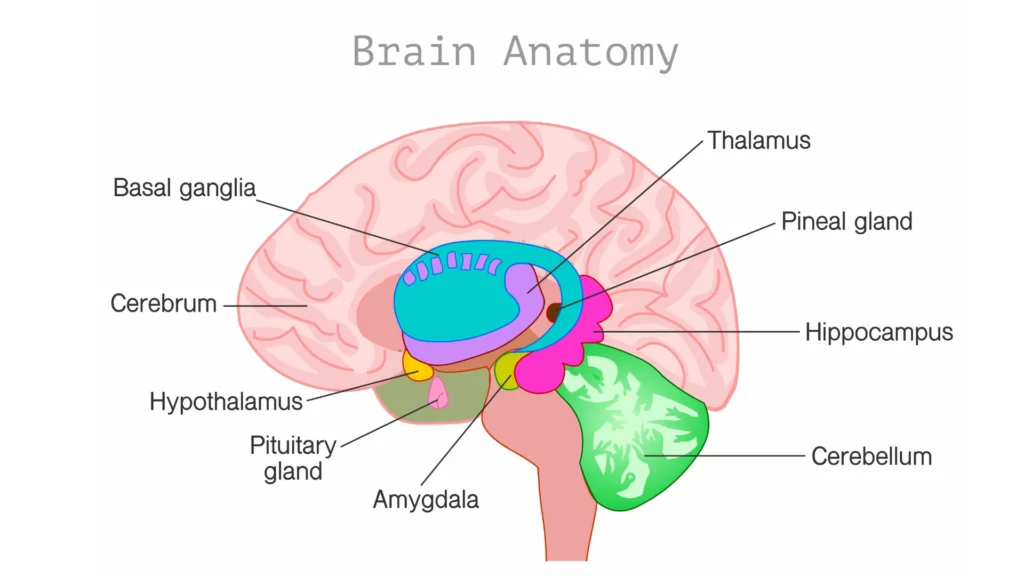Experts Agree Yoga Is Great for Your Brain: A Review of the Scientific Evidence

Article At A Glance
Important yoga research supports yoga practice as a tool to increase the volume of the hippocampus—a key player in memory processing known to shrink with age and chronic stress. Loss of hippocampal mass and function is strongly related to the onset of Alzheimer’s Disease and dementia. Learn more here about this exciting research and the many health benefits of yoga practice.
Although we’ve long known that cardiovascular exercise improves brain health and stimulates the growth of new neurons, we’ve known less about how yoga affects the brain. Now, a review of the research suggests that yoga may enhance many of the same brain structures and functions that are boosted by aerobic activity.
The review (1) published in the journal Brain Plasticity examined 11 studies that tested the relationship between Hatha Yoga practice (which combines movement, meditation, and breathing exercises) and brain health using brain-imaging techniques like magnetic resonance imaging (MRI).
Five of the studies included people with no yoga experience who were asked to practice yoga at least once weekly for 10-24 weeks. Researchers then compared participants’ brain function before and after the intervention. The remaining six studies looked at differences between the brains of people who regularly practiced yoga and the brains of those who didn’t.
Yoga Research: the Hippocampus, Amygdala, and Pre-Frontal Cortex

Results of the review showed that the brain regions impacted by yoga are similar to those affected by physical exercise. Of significant importance is the link between yoga practice and an increase in the volume of the hippocampus—a key player in memory processing known to shrink with age and chronic stress. (2) Loss of hippocampal mass and function is strongly related to the onset of Alzheimer’s Disease and dementia.
Research also showed that the amygdala, an important structure in the processing and regulation of emotion, was larger in yoga practitioners. In addition, key regions such as the prefrontal cortex, cingulate cortex, and brain networks such as the default mode network appeared to be bigger and/or more efficient in people who practiced yoga regularly.
Other Beneficial Changes to the Brain

The prefrontal cortex is known for its pivotal role in reasoning, planning, decision-making, flexible thinking, and self-regulation. The cingulate cortex, part of the limbic system, is a network of structures that help with emotional regulation, learning, and memory. Lastly, the default mode network includes several brain regions related to planning, memory, and thinking about the self.
Changes in these brain regions also appeared to be related to functional benefits. Specifically, the studies found that those who regularly practiced yoga also performed better on tests of emotion regulation and cognitive functioning.
It is important to note that research into the effects of yoga on brain health is still relatively new, so we’re not entirely sure why its effects parallel those of aerobic exercise. One potential explanation is that yoga may reduce stress (3), and chronic stress is consistently linked to the shrinking of the hippocampus (2) and deficits in brain function. Yoga practice can also improve how we regulate our emotions (4), which can also boost mental health and build stress resilience.
The researchers agree that there is much more to be known regarding how and why yoga may be beneficial for brain health, and more well-designed studies will be needed to understand better why this occurs.
 B Grace Bullock, Ph.D., E-RYT 500 is a psychologist, research scientist, educator, yoga and mindfulness expert, and author of Mindful Relationships: Seven Skills for Success – Integrating the Science of Mind, Body, and Brain. Her mission is to reduce stress, increase health and well-being, and improve the quality of relationships. She offers classes, workshops, writing, and research that combine the wisdom of applied neuroscience, psychophysiology, psychology, and contemplative science and practice. Her goal is to empower individuals, groups, leaders, and organizations to reduce chronic stress and increase awareness, attention, compassion, mindfulness, and effective communication to strengthen relationships, release dysfunctional patterns, and unlock new and healthy ways of being. Dr. Bullock is also the Founding Director and Principal Consultant of the International Science & Education Alliance, an organization devoted to exceptional research, program evaluation, assessment design, strategic planning, and capacity building to support equity, programmatic diversity, and scientific integrity and promote effective leadership, decision-making, and social change. Bullock is a Certified Viniyoga Therapist and Faculty at the Integrated Health Yoga Therapy (IHYT) Training program. She is the former Senior Research Scientist at the Mind & Life Institute and former Editor-in-Chief of the International Journal of Yoga Therapy. For more information, see www.bgracebullock.com.
B Grace Bullock, Ph.D., E-RYT 500 is a psychologist, research scientist, educator, yoga and mindfulness expert, and author of Mindful Relationships: Seven Skills for Success – Integrating the Science of Mind, Body, and Brain. Her mission is to reduce stress, increase health and well-being, and improve the quality of relationships. She offers classes, workshops, writing, and research that combine the wisdom of applied neuroscience, psychophysiology, psychology, and contemplative science and practice. Her goal is to empower individuals, groups, leaders, and organizations to reduce chronic stress and increase awareness, attention, compassion, mindfulness, and effective communication to strengthen relationships, release dysfunctional patterns, and unlock new and healthy ways of being. Dr. Bullock is also the Founding Director and Principal Consultant of the International Science & Education Alliance, an organization devoted to exceptional research, program evaluation, assessment design, strategic planning, and capacity building to support equity, programmatic diversity, and scientific integrity and promote effective leadership, decision-making, and social change. Bullock is a Certified Viniyoga Therapist and Faculty at the Integrated Health Yoga Therapy (IHYT) Training program. She is the former Senior Research Scientist at the Mind & Life Institute and former Editor-in-Chief of the International Journal of Yoga Therapy. For more information, see www.bgracebullock.com.
Sources
1. https://content.iospress.com/articles/brain-plasticity/bpl190084
2. https://www.sciencedirect.com/science/article/pii/S1568163705000036
3. https://www.ncbi.nlm.nih.gov/pubmed/21614942
4. Menezes, Carolina & Dalpiaz, Natalia & Kiesow, Luiz & Sperb, William & Hertzberg, Juliana & Oliveira, Alcyr. (2015). Yoga and emotion regulation: A review of primary psychological outcomes and their physiological correlates. Psychology & Neuroscience. 8. 82-101. 10.1037/h0100353.


